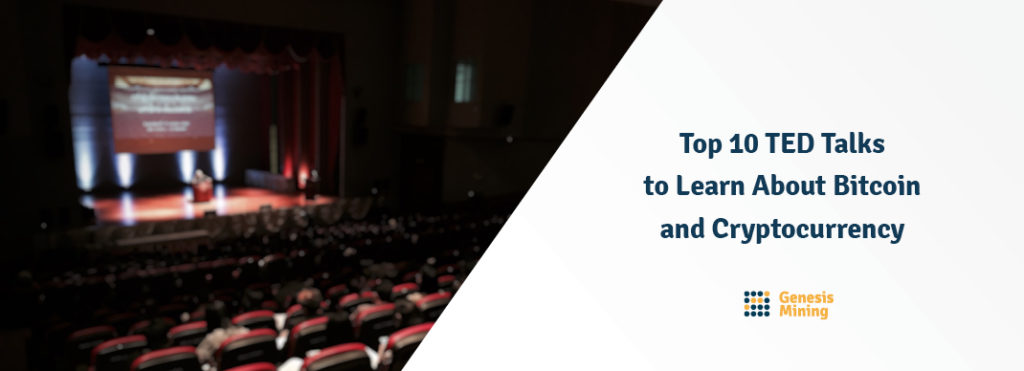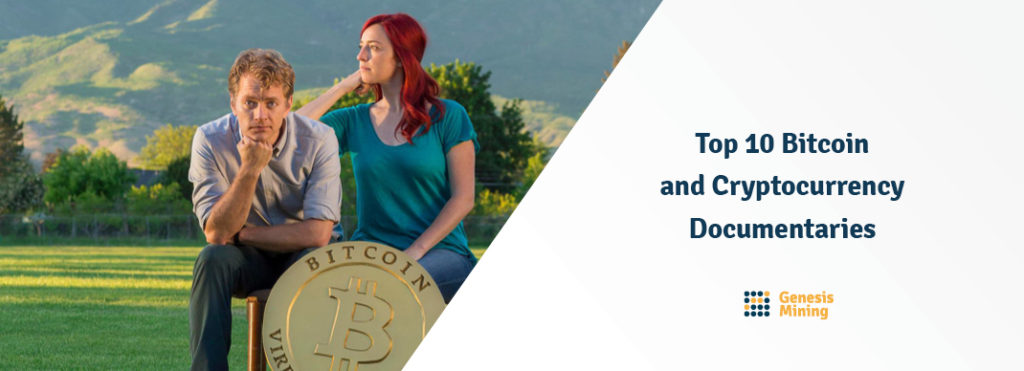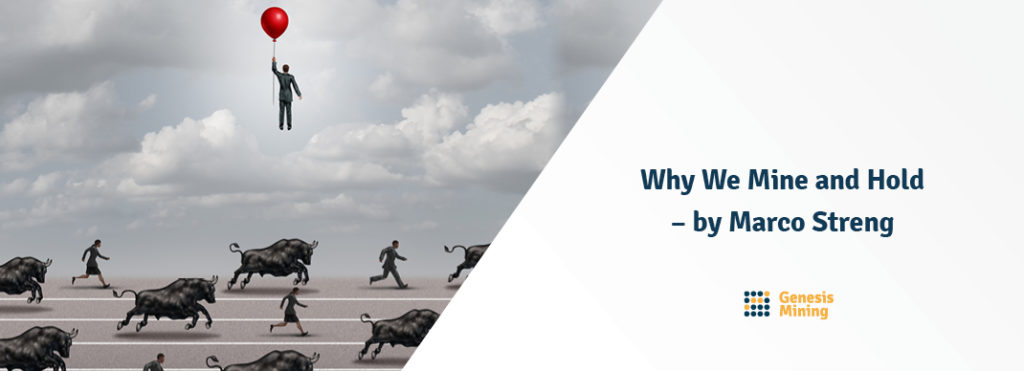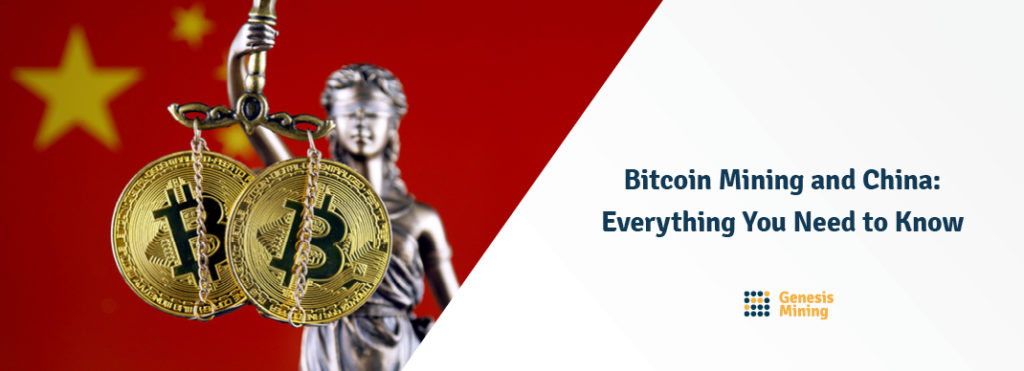We’re excited about the future of digital currency here at Genesis Mining, and we want you to be too. Whether you’re first hearing the term “blockchain,” or you’ve been mining Bitcoin yourself for a while, there’s always more to learn. That’s why we’ve compiled our favorite TED Talks about blockchain and Bitcoin for you.
These talks will educate you on the technological innovation that is the blockchain, how Bitcoin is mined and used, and how digital currency might be the future of money and society. But truly understanding cryptocurrency requires shifting your mindset about money, and these talks will challenge you to think differently about the world around you.
Marco Streng – How I Built a Bitcoin Empire
We may be biased but we’re big fans of the talk our founder and CEO Marco Streng gave. Marco talks about what Bitcoin is and why it offers up a better alternative for banking, but the appeal here is really about the journey: Marco started mining Bitcoin with a few computers in a crate in his dorm room. He then established Genesis Mining, gathering whatever equipment he could to fill their first location. Genesis Mining moved to a massive facility in Iceland, one of the largest mining facilities in the world, which uses so much computing power it has a $1 million monthly electric bill!
Why we like it: We like it because it’s our origin story!
Don Tapscott – How the Blockchain is Changing Money and Business
In this talk Don Tapscott, Co-Founder of the Blockchain Research Institute, walks listeners through the basics of how the blockchain works, including how a transaction is posted, what a miner is, what a block is and how it’s created, and how it relies, at its core, on trust. But more than simply managing transactions, Tapscott argues that blockchain technology can solve large global problems, from wealth disparity to intellectual property protection.
Why we like it: Tapscott is an expert in blockchain, and this video is a great intro to the function and scope of blockchain.
Bettina Warburg – How the Blockchain Will Radically Transform the Economy
Blockchain researcher and entrepreneur Bettina Warburg looks at the reasons why the decentralized blockchain can be a great benefit for society from an economic perspective, and explains how it can reduce uncertainty and create value for everyday consumers in three new ways: by knowing better who we’re dealing with, by getting visibility into transactions, and by having recourse when something goes wrong.
Why we like it: Warburg gets us thinking about economics in a fun, thought-provoking way.
Jeremy Rubin – What the #?!* is Bitcoin?
Jeremy Rubin, Technical Director of the MIT Bitcoin Project, explains what Bitcoin is and how it works by simply recreating the system from scratch in front of the audience, showing how Bitcoin evolved to answer security and authentication issues. Rubin also defines Bitcoin and blockchain terms, and proposes higher-level ideas about Bitcoin to show that not only is Bitcoin versatile, but that it can change money usage how we know it.
Why we like it: At lightning speed, Rubin recreates Bitcoin before our eyes, so we see why it was made the way it was made.
Neha Narula – The Future of Money
Is it possible to rethink how money works? Neha Narula, Director of Digital Currency Initiative at MIT, believes we can, and challenges us to think about money not as a piece of paper but as anything we assign value to and exchange. That shift in thinking will allow us to see how our current systems have too much friction to them and how cryptocurrency is the first step towards what she calls “permissionless innovation.”
Why we like it: Narula’s easy-to-understand examples end up challenging us to rethink ideas we’ve always held.
Jad Mubaslat – What is Money? And Could Bitcoin Be the Best One?
What are the key properties of money? Jad Mubaslat, VP of engineering at a crypto brokerage firm, details the dangers of our fiscal systems — inflation, no longer being on the gold standard, no government accountability — and how Bitcoin is a better way forward, embodying all the properties of money in an even better way than gold.
Why we like it: As the most recent TED Talk on our list, Mubaslat is able to include the most up-to-date examples to show how far Bitcoin has come.
Juan Llanos – Digital Currencies like Bitcoin Are Coming Very Fast (and It’s a Good Thing)
Could Bitcoin equalize the global economy? Anti-money laundering expert Juan Llanos tells his story of living through Argentina’s inflation crisis and sovereign debt default. Most countries have no formal banking system and rely upon remittances from other countries — at the expense of high service fees. Llanos argues that Bitcoin — accessible to all, corruption-proof, and secure — could be a great economic equalizer and uncover economic value where we haven’t seen it before.
Why we like it: Llanos makes the case that Bitcoin can benefit everyone, especially those in unbanked countries.
Rachel Botsman – We’ve Stopped Trusting Institutions and Started Trusting Strangers
Once there was a time when you would never get a in a car with a stranger or rent someone’s home, but today, we do it all the time. Leading expert and author on trust Rachel Botsman explains how trust in institutions has decreased, while trust in complete strangers — Airbnb, Uber — is the new norm in our digital world. The shift happened because of a shift in our trust. Could we do the same with blockchain?
Why we like it: In order to adopt cryptocurrency, we need a shift in mentality and trust like the kind Botsman talks about.
Galia Benartzi – The Value Revolution: How Blockchain Will Change Money & the World
“Imagine a magical book,” begins Galia Benartzi’s explanation of the blockchain. “And the magic is math.” As co-founder of a cryptocurrency protocol company, Benartzi has worked with a myriad of cryptocurrencies, and details not only how they work, but their possibilities. She shares the story creating of a local cryptocurrency and how it bloomed in the community, allowing users to earn currency by doing good deeds, creating what she calls a “much smarter money supply.”
Why we like it: Benartzi has created a local crypto currency, and its story shows a whole new way of doing society.
Elyse Barg – Cryptocurrencies — Cool, So What?
When high school student Elyse Barg heard about cryptocurrency in a class, she wanted to find out what it was — and discovered that most people didn’t know either. Barg addresses some of the bigger questions of how cryptocurrency will affect the world economy, from challenging current banking systems to holding governments accountable for their fiscal actions. “So what?” She says cryptocurrency can be a massive force of change, if we know how to use it.
Why we like it: Barg brings up great Devil’s Advocate questions about cryptocurrency — and where else can you learn about economic systems and fiscal policy from a high schooler?





